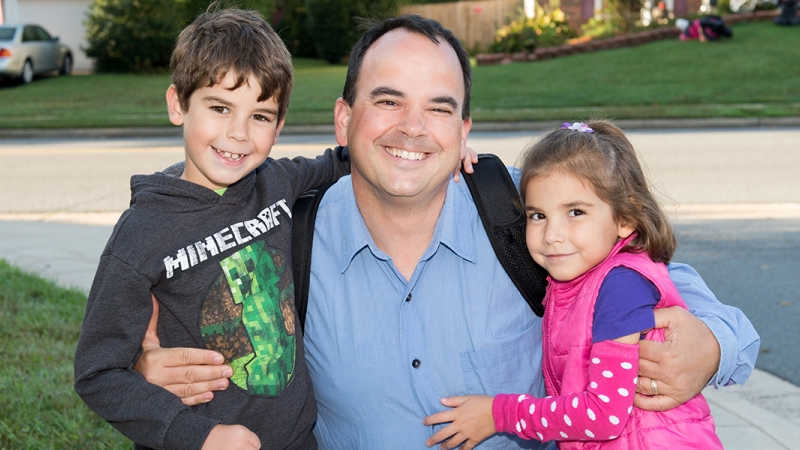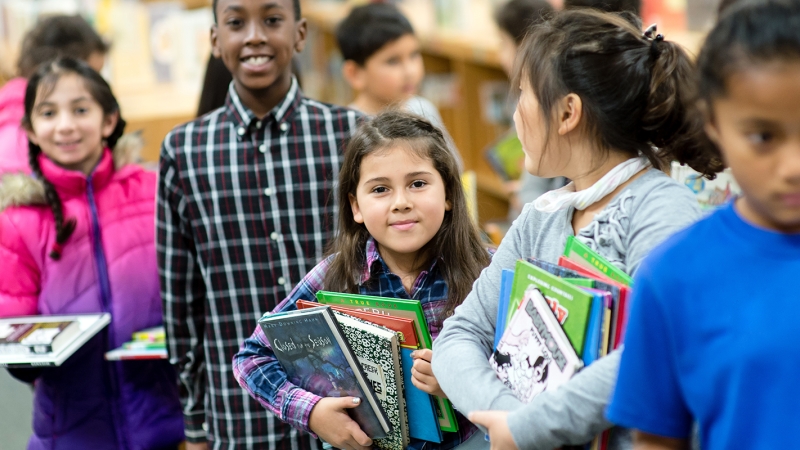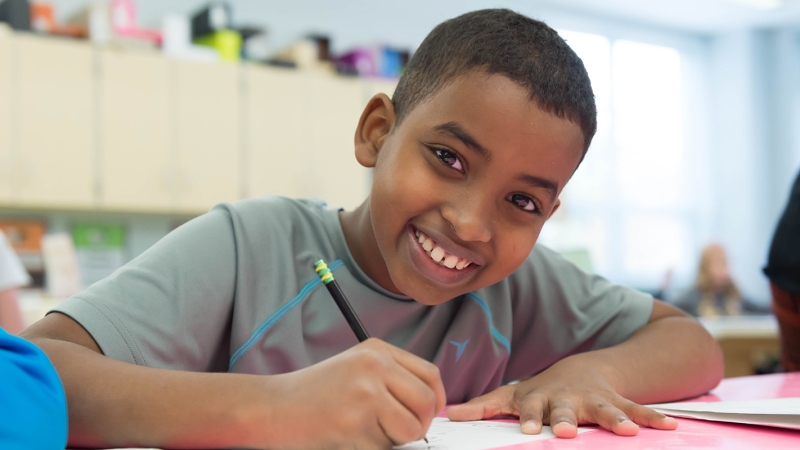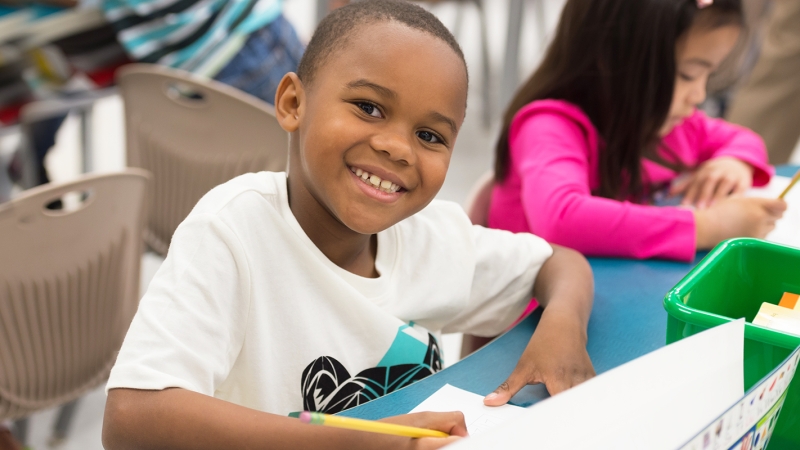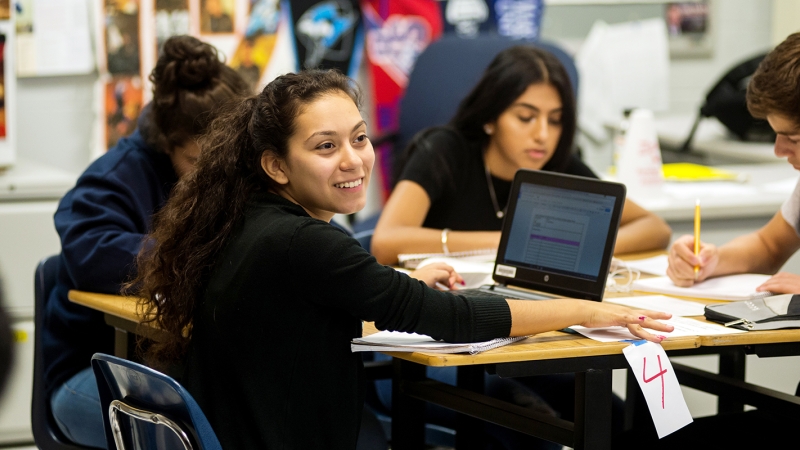
Social Emotional Impacts of Dyslexia
Dyslexia may take a toll on a student’s self-esteem, may impact his or her relationships, and at times, may manifest in behavioral challenges. There are supports that can help these students continue to be confident and successful.
Dyslexia can pose unique social and emotional challenges for students. Students with dyslexia may have other areas of learning that come easily to them, and when they are confronted with text they cannot decode or words they cannot spell, these difficulties are unexpected. They may feel like “something is wrong” with them because reading and writing should come as easily to them as do other areas of learning.
Some students’ cognitive abilities can heighten self-awareness of their struggles, which can lead to feelings of frustration and failure. Over time, the sense that reading and writing should be easy for them but isn’t may take a toll on self-esteem (Ghisi, Bottesi, Re, Cerea & Mammarella, 2016; International Dyslexia Association, retrieved from https://dyslexiaida.org/the-dyslexia-stress-anxiety-connection/ on 2/21/17; Ridsdale, 2004).
Cognitive abilities can also heighten a student’s awareness of others. A student with dyslexia may compare himself or herself to peers of the same cognitive abilities who do not struggle with reading and writing. Students with dyslexia may feel alienated from peers or strive to hide their difficulties in an effort to fit in which can pose a challenge to their social relationships (Reinke et al., 2008).
MORE THAN THEIR DYSLEXIA
All students demonstrate strengths and challenges across educational and non-academic areas. When working with students with dyslexia, it is essential to help them come to understand that they have a variety of abilities and are not limited by the challenges they may face.
The goal is to support the development of resilient students. Resiliency is defined as the capacity to withstand or recover quickly from difficult circumstances. When students with dyslexia are resilient, they can face their challenges and find ways to handle them. The teaching and supporting of resiliency and promoting of self-esteem are crucial for success (Butler & Edmonson, 2009; Ridsdale, 2004).
TIPS FOR SUPPORTING STUDENTS’ SOCIAL EMOTIONAL NEEDS
It is important for parents or guardians of a child with dyslexia to recognize and support his or her feelings, thoughts and ideas by discussing how he or she is impacted by dyslexia. Students need adults to model positive attitudes in the face of adversity who will teach them to believe in themselves. They thrive with praise which acknowledges their efforts rather than praise which rewards the outcome.
Students with dyslexia may demonstrate anxiety, depression, and frustration (Butler & Edmonson, 2009; Ghisi et al., 2016; Ridsdale, 2004). In working with students, it will help to identify achievable goals, celebrate small successes, recognize and celebrate effort and progress in addition to results, identify underlying feelings (such as fear or frustration), and validate them while supporting a focus on effort over achievement.
Specific Social Emotional Supports for Students
- Together with the student, identify a trusted adult at school to whom he or she can turn for support and encouragement
- Teach students self-advocacy skills. Use scenarios to practice this skill set. See the section entitled, “Self-Advocacy and Voice for Students with Dyslexia” for more information.
- Explain dyslexia to the student while reinforcing age-appropriate skills in other subject areas.
- Support the development of skills and nonacademic talents in any valued activity to enhance self-esteem, such as athletics, the arts and other creative ventures.
- Find opportunities for these students to help others or be leaders for others during different activities.
- Promote balance between reading and writing and other preferred extracurricular activities.
- See outside resources to support the student’s social emotional well-being.
- Join in-person or virtual communities of people who are facing similar struggles.
See “Dyslexia Resources” for links to dyslexia communities.
PUTTING SCHOOL IN PERSPECTIVE
Students with dyslexia may need to rely upon the adults in their lives to help them put their school challenges in perspective. Many famous adults with dyslexia look back on their school years as a time when they felt they would never be successful in life because they didn’t feel successful as readers and writers. Families and educators can remind students that life beyond school, both in the present and in the future, is not defined by their difficulties but by their strengths.
With more tools for differentiating instruction and accessing accommodations, students with dyslexia can feel highly successful in and out of school. Appropriate supports and a strengths-based focus can allow our students the opportunity to feel successful throughout the school years (Scruton & McNamara, 2015).
When students with dyslexia have an opportunity to pursue their passions, practice their gifts, and choose careers based on their talents, they are able to be successful. The adults in their lives can help students with dyslexia maintain a positive outlook on the future and its possibilities.
REFERENCES
Butler, C. & Edmonson, S. L. (2009). Fostering resiliency: Making schools a better place for students with dyslexia. In Achiles, C. M., Irby, B. J., Alford, B., & Perreault, G. (Eds.), The 2009 Yearbook of the National Council of Professors of Educational Administration (109-118). Lancaster, PA: DEStech Publications, Inc.
Ghisi, M., Bottesi, G., Re, A. M., Cerea, S., & Mammarella, I. C. (2016). Socioemotional features and resilience in Italian university students with and without dyslexia. Frontiers in Psychology, 7, 478.
International Dyslexia Association. (2013).The dyslexia-stress-anxiety connection: Implications for academic performance and social interactions. Baltimore, MD: International Dyslexia Association. Retrieved from https://dyslexiaida.org/the-dyslexia-stress-anxiety-connection/ on February 21, 2017.
International Dyslexia Association. (2002). Definition of dyslexia. Baltimore, MD: International Dyslexia Association. Retrieved from https://dyslexiaida.org/definition-of-dyslexia/ on February 21, 2017.
National Center on Disability and Journalism (2017). Disability language style guide. Tempe: AZ: Walter Cronkite School of Journalism and Mass Communication at Arizona State University. Retrieved from http://ncdj.org/style-guide/ on 3/7/17.
Reinke, W. M., Herman, K. C., Petras, H., & Ialongo, N. S. (2008). Empirically derived subtypes of child academic and behavior problems: Co-occurrence and distal outcomes. Journal of Abnormal Child Psychology, 36, 759-770.
Ridsdale, J. (2004). Dyslexia and self-esteem. In M. Turner, & J. Rack (Eds.), The Study of Dyslexia (249-279). New York, NY: Kluwer Academic Publishers.
Scruton, H. & McNamara, J. (2015). An interactionist approach to learning disabilities. International Journal of Education, 7(4), 43-52.
© 2017 Fairfax County School Board. All rights reserved. This material may not be reproduced, displayed, modified or distributed without the express prior written permission of the copyright holder. For permission, contact the FCPS Department of Special Services, Office of Special Education Instruction, Willow Oaks Corporate Center, 8270 Willow Oaks Corporate Drive, Fairfax, VA 22031.
